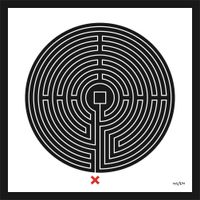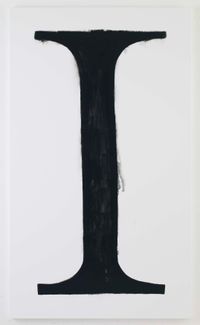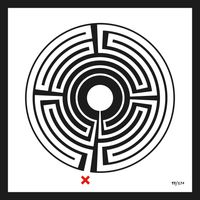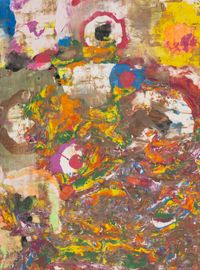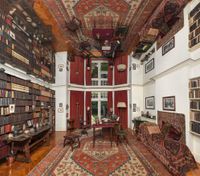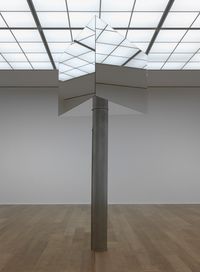Mark Wallinger, born Chigwell, UK, 1959, has created some of the most subtly intelligent and influential artworks of the last thirty years. Wallinger is known for his career-long engagement with ideas of power, authority, artifice and illusion. Using epic narratives, lyrical metaphors and ardent punning, the artist interleaves the mythological, the political and the everyday.
Read MoreHis work has dealt with religion, nationalism and class, explored urgent social issues, and pondered Einstein's theory of relativity and Freud's concepts of the nature of the human mind. A surprising, inventive and profound artist, whose astonishingly multi-faceted work encompasses painting, sculpture, printmaking, photography, film and video, performance and work for the public realm. Stylistic disparity conceals a conceptual coherence, as Wallinger poses big questions about identity, and about the social, cultural and political power structures that guide us, and because of which we are as we are.
In recent years, Wallinger has intensified this exploration of identity in more personal interrogations of the self. This is keenly apparent in the id Paintings (2015-2016), a development of his extensive Self Portrait series. They move his practice, as he says from 'painting 'I's to 'I paint' - from image to action. Each painting pivots round the line of symmetry created by the artist's body evoking the bilateral symmetry of Leonardo da Vinci's Vitruvian Man and more explicitly the Rorschach test. Created by sweeping paint-laden hands across the canvas in active freeform gestures, the id Paintings bear the evidence of their making and of the artist's encounter with the surface.
Wallinger was first nominated for the Turner Prize in 1995, and won it in 2007 for his installation State Britain, an exact replica of peace campaigner Brian Haw's protest camp in London's Parliament Square. Ecce Homo (1999), a life-sized sculpture of Jesus Christ, was the first work to occupy the empty plinth in Trafalgar Square. Wallinger represented Britain at the Venice Biennale in 2001.
Public commissions are central to Wallinger's practice, the most recent being Writ in Water, a monumental installation to commemorate the sealing of the Magna Carta commissioned by the National Trust for Runnymede, England, and The World Turned Upside Down, a major sculpture for the London School of Economics. In 2013, Wallinger created Labyrinth, a permanent commission to celebrate their 150th anniversary of the London Underground that spans all 270 stations on the network.
Text courtesy Hauser & Wirth.
